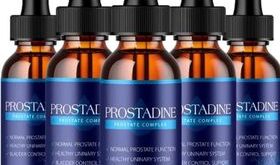Building muscle is a challenging yet rewarding journey that requires dedication, hard work, and the right approach. If you’re looking to transform your physique, improve your strength, and boost your self-confidence, Wellhealth’s comprehensive muscle-building program can provide you with the roadmap to achieve your goals. In this ultimate guide, we will explore the essential components of building muscle with Wellhealth, including nutrition, effective workout strategies, the role of mindfulness, the importance of consistency, avoiding common pitfalls, building muscle safely, and real-life success stories. Get ready to embark on your muscle-building journey and unleash your full potential with Wellhealth.
Table of Contents
- Setting Clear Muscle-Building Goals
- Incorporating Mindfulness for Muscle Growth
- The Importance of Consistency
- Avoiding Common Pitfalls
- Building Muscle Safely
- Success Stories: Real-Life Inspiration
- Conclusion
Setting Clear Muscle-Building Goals
Setting clear and attainable goals is the first step in any muscle-building journey. Whether your goal is to increase muscle mass, improve strength, or sculpt your body, having a specific target in mind will help you stay focused and motivated throughout the process. Wellhealth recognizes the importance of goal setting and guides how to set realistic and achievable objectives. By defining your goals, you can tailor your workout routine, adjust your nutrition plan, and track your progress effectively.
The Role of Nutrition in Muscle Development
When it comes to building muscle, nutrition plays a critical role. Your diet provides the essential building blocks for muscle growth and repair. Well-health emphasizes the importance of a well-balanced diet that includes an adequate amount of protein, carbohydrates, and healthy fats. Protein is especially crucial as it provides the amino acids necessary for muscle synthesis. Aim for 1 to 1.5 grams of protein per pound of body weight per day, and choose lean sources such as chicken, fish, lean meat, eggs, and legumes.
Carbohydrates are your body’s primary source of energy, fueling your workouts and supporting muscle recovery. Opt for complex carbohydrates like rice, oats, potatoes, and vegetables. Aim for 2 to 3 grams of carbs per pound of body weight per day, timing your intake around your workouts for optimal performance.
Healthy fats are essential for overall health and hormone production. Include sources like olive oil, nuts, and avocados in your diet while limiting saturated fats from red meat and full-fat dairy. Aim for 0.5 to 0.9 grams of fat per pound of body weight per day.
Effective Workout Strategies
To build muscle effectively, a well-designed workout routine is crucial. Wellhealth recommends incorporating a combination of resistance training and cardiovascular exercises to maximize muscle growth and maintain overall fitness. Resistance training, such as weightlifting, stimulates muscle hypertrophy and strength gains. Focus on compound exercises that target multiple muscle groups, such as squats, deadlifts, bench presses, pull-ups, rows, overhead presses, and lunges. Start with 2-4 sets of each exercise with 6-12 reps, gradually increasing the weight and decreasing the reps as your muscles adapt and grow.
In addition to resistance training, cardiovascular exercises help improve cardiovascular health, enhance endurance, and promote overall fitness. Incorporate activities like running, swimming, cycling, or HIIT (high-intensity interval training) into your routine for a well-rounded approach to fitness.
Incorporating Mindfulness for Muscle Growth
Mindfulness practices can complement your muscle-building journey by improving focus, reducing stress, and enhancing overall well-being. Wellhealth recognizes the importance of mental health in achieving physical goals and encourages the integration of mindfulness techniques into your muscle-building routine.
Mindfulness involves being fully present and aware of your thoughts, emotions, and sensations in the present moment. By practicing mindfulness during workouts, you can enhance mind-muscle connection, improve exercise form, and optimize the effectiveness of each repetition. Focus on the sensation of the muscles being worked, the quality of your breath, and the alignment of your body.
Incorporating mindfulness outside of the gym can also have a positive impact on muscle growth. Stress management is crucial, as chronic stress can hinder muscle recovery and growth. Engage in activities like meditation, yoga, deep breathing exercises, or journaling to reduce stress levels and promote overall well-being.
Rest and Recovery: The Unsung Heroes
Rest and recovery are often overlooked but essential elements of muscle development. While intense workouts provide the stimulus for muscle growth, it is during periods of rest that the actual growth and repair occur. Wellhealth emphasizes the importance of prioritizing rest days and quality sleep to optimize muscle recovery.
Aim for 7 to 9 hours of uninterrupted sleep per night to allow your body to repair and regenerate. Lack of sleep can lead to decreased muscle protein synthesis, impaired recovery, and decreased performance. Create a sleep-friendly environment by ensuring a comfortable mattress, a quiet room, and a relaxing bedtime routine.
In addition to sleep, active recovery techniques can also aid in muscle repair. Incorporate activities like foam rolling, stretching, and light cardio on rest days to improve blood flow, alleviate muscle soreness, and promote faster recovery.
The Importance of Consistency
Consistency is vital in any muscle-building program. Wellhealth emphasizes the importance of staying committed and dedicated to your routine, even when motivation wavers. Building muscle is a gradual process that requires consistent effort over time.
Stick to your workout schedule and follow your nutrition plan consistently. Don’t get discouraged by temporary setbacks or plateaus. Trust the process and stay focused on your long-term goals. Remember that results take time, and small, consistent efforts will add up to significant progress over time.
Tracking Progress: Keeping Motivated
Tracking your progress is essential for staying motivated and making necessary adjustments to your routine. Wellhealth encourages documenting your journey by taking progress photos, keeping a workout log, and monitoring your strength and endurance levels.
Progress photos provide a visual representation of your transformation and can serve as a powerful motivator. Take photos from different angles and compare them periodically to see the changes in your physique.
Keeping a workout log allows you to track the weights, sets, and reps for each exercise. This helps you monitor your progress, identify areas for improvement, and ensure progressive overload by gradually increasing the intensity of your workouts.
Monitoring your strength and endurance levels can also be motivating. Celebrate small victories like lifting heavier weights, completing more reps, or running a longer distance. Seeing tangible improvements in your performance can boost your confidence and reinforce your dedication to your muscle-building journey.
Avoiding Common Pitfalls
There are common pitfalls that can hinder your progress in building muscle. Wellhealth highlights the importance of avoiding these pitfalls to ensure optimal results.
One common mistake is skipping warm-ups and neglecting proper exercise techniques. Warm-ups prepare your muscles and joints for the workout, reducing the risk of injury. Always perform a dynamic warm-up routine before starting your resistance training or cardiovascular exercises.
Exercise form is crucial for targeting the intended muscles and preventing injury. Focus on proper technique, engage your core, and maintain proper alignment throughout each exercise. If you need more clarification on the proper form, consider working with a qualified trainer or coach.
Flexibility training should be noticed. Incorporate stretching exercises or practices like yoga to improve flexibility, prevent muscle imbalances, and enhance overall mobility.
The Power of Supplements
Supplements can complement a well-rounded diet and exercise routine, but they should not replace it. Wellhealth acknowledges the potential benefits of certain supplements in muscle development but emphasizes that they should be used as supplements, not substitutes.
Protein powder can be a convenient way to increase your protein intake and support muscle repair and growth. Choose high-quality protein powders and follow the recommended dosage instructions.
Creatine is a popular supplement that has been shown to enhance muscle strength and power. It works by increasing the availability of energy in the muscles during high-intensity exercises.
BCAAs (branched-chain amino acids) are essential amino acids that play a crucial role in muscle protein synthesis. Consuming BCAAs before or during workouts may help reduce muscle breakdown and improve recovery.
It’s important to note that supplements should be used under the guidance of a healthcare professional, especially if you have any underlying health conditions or are taking medication. Consult with a healthcare professional to determine which supplements, if any, are suitable for you.
Building Muscle Safely
Safety should always be a priority when building muscle. Wellhealth emphasizes the importance of proper form, gradual progression, and listening to your body to prevent injuries and promote long-term success.
Use correct form and technique during your workouts to ensure that you’re targeting the intended muscles and minimizing the risk of injury. If you need more clarification on the proper form, consider working with a qualified trainer or coach who can guide you.
Gradually increase the intensity of your workouts over time. Avoid sudden spikes in weight or volume, as this can put excessive stress on your muscles and joints. Aim for progressive overload by gradually increasing the weight, sets, or reps in a controlled manner.
Listen to your body and respect its limits. Push yourself, but also know when to back off and allow for proper recovery. Pay attention to any signs of pain, discomfort, or fatigue, and adjust your workouts accordingly.
Staying Informed: The Latest Trends
The fitness industry is constantly evolving, with new trends, techniques, and tools emerging regularly. Staying informed about the latest advancements can help you optimize your muscle-building journey. Wellhealth encourages staying curious and open-minded, exploring new training methods, and experimenting with different approaches to find what works best for you.
Keep up with reputable fitness resources, follow trusted experts in the field, and engage in forums or communities where you can learn from others’ experiences. Stay informed about evidence-based practices and be critical of sensationalized or unsupported claims.
Remember that what works for one person may not work for another. Each individual is unique, and it’s important to find an approach that suits your specific needs, preferences, and goals.
Success Stories: Real-Life Inspiration
Real-life success stories can be a great source of inspiration and motivation. Wellhealth has witnessed numerous individuals transform their bodies and achieve their muscle-building goals through their programs. These success stories serve as a reminder that with dedication, consistency, and the right approach, anyone can achieve remarkable results.
Reading about the struggles and triumphs of others can provide valuable insights, practical tips, and a sense of camaraderie. Explore testimonials, interviews, or case studies of individuals who have gone through similar journeys and learn from their experiences.
Conclusion
Building muscle is a transformative journey that requires dedication, hard work, and a well-rounded approach. With Wellhealth’s comprehensive muscle-building program, you have the tools and guidance to achieve your goals and unleash your full potential. By setting clear goals, optimizing your nutrition and workout strategies, incorporating mindfulness, staying consistent, avoiding common pitfalls, building muscle safely, and drawing inspiration from real-life success stories, you can embark on a fulfilling and rewarding muscle-building journey. Remember, it’s not just about physical transformation but also about improving your overall well-being and embracing a healthier lifestyle. Get started with Wellhealth and unlock your muscle-building potential today!
Frequently Asked Questions
Can Wellhealth’s muscle-building program help with weight loss, too?
While Wellhealth’s primary focus is on increasing muscle mass, its program can indirectly support weight loss by boosting metabolism, improving overall fitness, and promoting a healthier lifestyle.
Is Wellhealth suitable for all age groups?
Yes, Wellhealth’s muscle-building program is designed to be suitable for individuals of all age groups. However, it’s always a good idea to consult with a healthcare professional before starting any new exercise or nutrition program, especially if you have any underlying health conditions.
How long does it take to see noticeable muscle gains with Wellhealth?
The timeline for noticeable muscle gains varies from person to person. It depends on factors such as your starting point, genetics, nutrition, workout intensity, and consistency. While some individuals may see significant results in a few months, for others, it may take longer. Remember, building muscle is a gradual process that requires patience and consistency.
Do I need a gym membership for Wellhealth’s muscle-building program?
While a gym membership can provide access to a wide range of equipment and facilities, it is optional for Wellhealth’s muscle-building program. Many exercises can be performed with minimal equipment or even body weight. You can adapt the program to your specific circumstances and work from the comfort of your home or any other suitable environment.
Can Wellhealth’s muscle-building program help improve mental health?
Yes, Wellhealth recognizes the importance of mental health in achieving physical goals. The integration of mindfulness practices and stress management techniques in their program can have a positive impact on mental well-being. By reducing stress levels, improving focus, and promoting overall mindfulness, the program aims to enhance not only physical but also mental health.
 Lifeyet News Lifeyet News
Lifeyet News Lifeyet News





